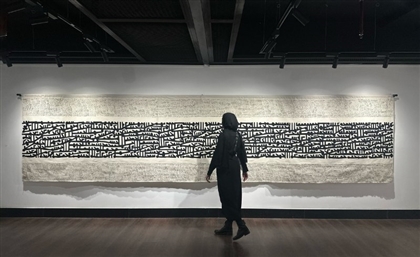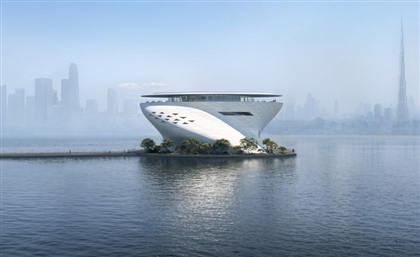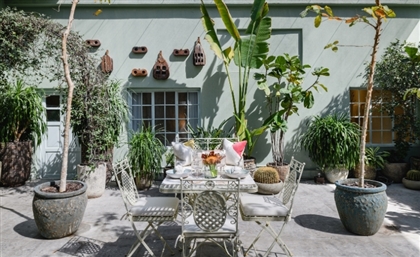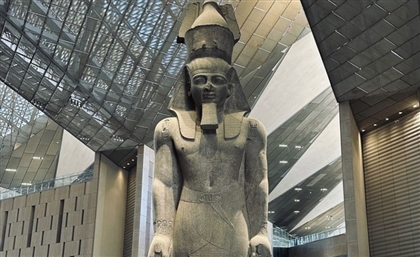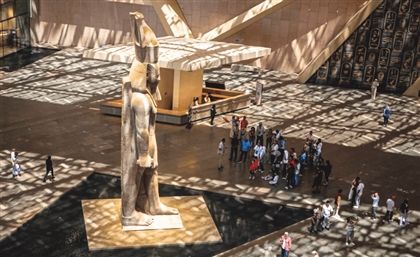Woman-Led Firm ECOnsult Turns Local Sustainability Into Global Impact
From carbon-neutral homes to corporate green buildings, ECOnsult is proving that sustainable design is within reach.

We no longer ask, Why go green? The real question is, Why not? This shift in mindset - this urgency - is at the heart of ECOnsult, Egypt’s pioneering force in sustainable architecture. Founded in 2013 by Sarah El Battouty, a climate entrepreneur who refused to accept the status quo, the company has proven that affordability and sustainability can coexist.
For over a decade, ECOnsult has been altering Egypt’s built environment, project by project. At a time when green design was dismissed as an expensive luxury, the company took a different approach - one rooted in practicality, innovation and deep environmental responsibility.
“Sustainable design is at the core of what we do, bridging the gap between climate responsiveness, affordability, and accessibility,” Sarah El Battouty, founder of ECOnsult, tells SceneHome. “A ‘green’ building is a building that, through environmental design, seeks to lower its environmental impact and maximize social and economic value over its whole life-cycle - from design, construction, operations, and maintenance, to renovation and demolition.”
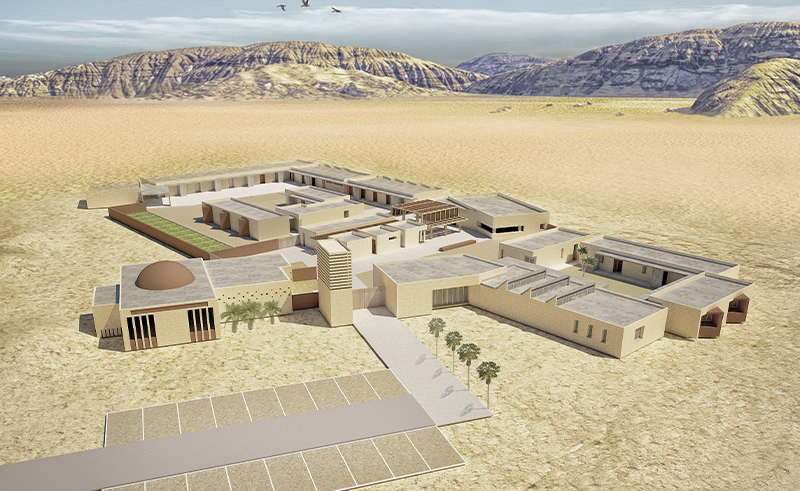
Architectural education for El Battouty has always been more than just a foundation—it’s a guiding force. After earning her bachelor’s degree from Cambridge, she continued to push the academic envelope with a master’s in Climate Policy and Project Management from SOAS in London, where she began to reimagine the boundaries between academia and real-world practice.
“I wish to see more integrated environmental and social education across all fields,” she shares. “So future generations can approach global challenges with holistic, not siloed, thinking.”
That vision continues to shape her path today. As a board member of the American Chamber of Commerce Cairo, an advisor for AUC Architecture, and a fellow at the Middle East Institute in Washington, El Battouty blurs the lines between disciplines. Through ECOnsult, she brings that same methodical, mission-driven approach—designing not just buildings, but strategies, systems, and advocacy for better livelihoods.

As the first Egyptian architect nominated for the Earthshot Prize, Sarah El Battouty put ECOnsult at the forefront of climate innovation. Her influence goes beyond design, championing women in sustainability on Egypt’s National Council for Women and driving impact across African communities, earning recognition from King Charles’ Commonwealth Entrepreneurs Initiative. Ranked among the 100 Most Impactful Women in Climate and recognized alongside visionary designers like Sir Norman Foster, Stella McCartney, Anna Heringer, and Francis Kéré, she proves that true power lies in rooted, local practices. For her, architecture isn’t just about buildings, it’s about people, progress, and a thriving planet.
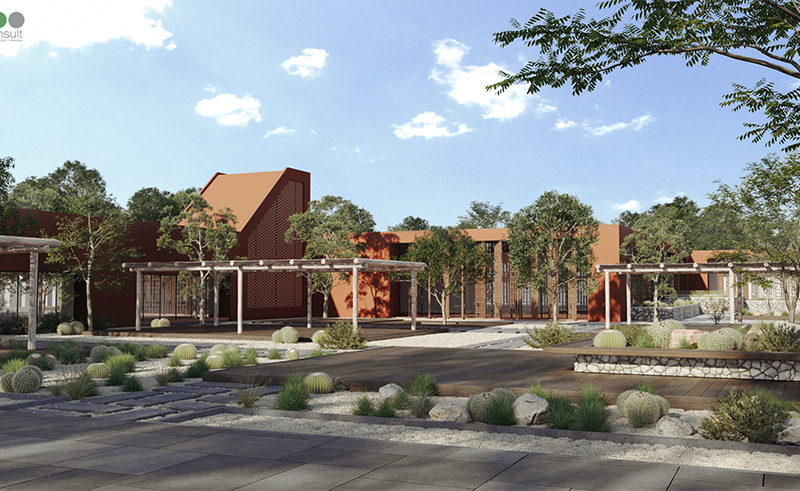
ECOnsult’s defining moment came in 2020 with North Africa’s first Carbon Neutral Residential project, a breakthrough in sustainable design that achieved a 10-degree temperature reduction without mechanical cooling. Recognised by the United Nations Framework Convention on Climate Change (UNFCCC) and Ashden, the project proved that green architecture wasn’t just about cutting emissions - it was about transforming daily life in an era of rising temperatures.
That vision extended beyond individual homes to entire communities. In Royal Herbs Village, deep in Egypt’s Western Desert, where summer temperatures soar past 50°C, ECOnsult took on a challenge few dared to attempt: designing rural homes that could remain cool without costly, energy-draining air conditioning. The solution wasn’t high-tech - it was smart. Local materials replaced energy-intensive alternatives, airflow was redesigned for maximum ventilation, and shaded courtyards became essential living spaces.
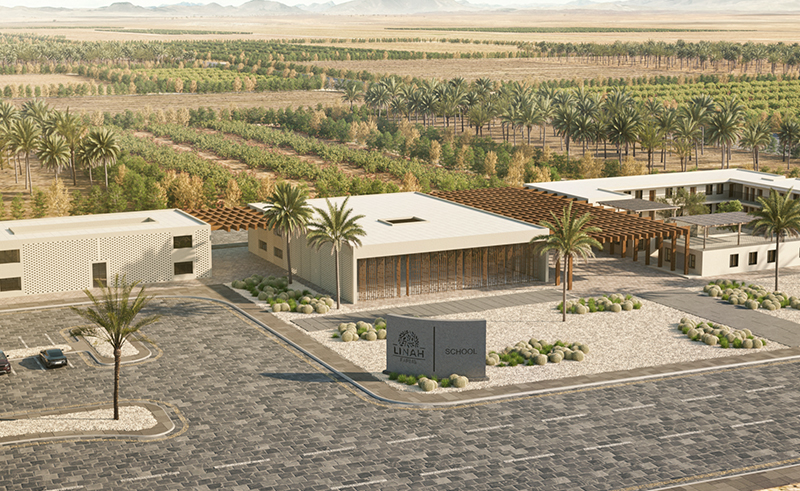
On a 4,200 sqm plot, the practice built a self-sustaining complex of eight structures, housing 120 people, including workers, engineers and visitors. The village included a cafeteria, a clinic, meeting and training rooms, and a worship area, all designed to function efficiently in extreme conditions. Royal Herbs Village became the MENA region’s first Carbon Neutral project, proving that resilience doesn’t have to come at the cost of comfort.
The impact was global. ECOnsult’s work set a new benchmark for climate-responsive rural development, earning international recognition. Among its milestones was the world’s first Green Communities Certification by the World Green Building Council.
El Battouty’s influence extended beyond design. As a senior advisor to the Egyptian President since 2014 and a UNFCCC Global Ambassador, she has positioned herself at the crossroads of policy and practice.
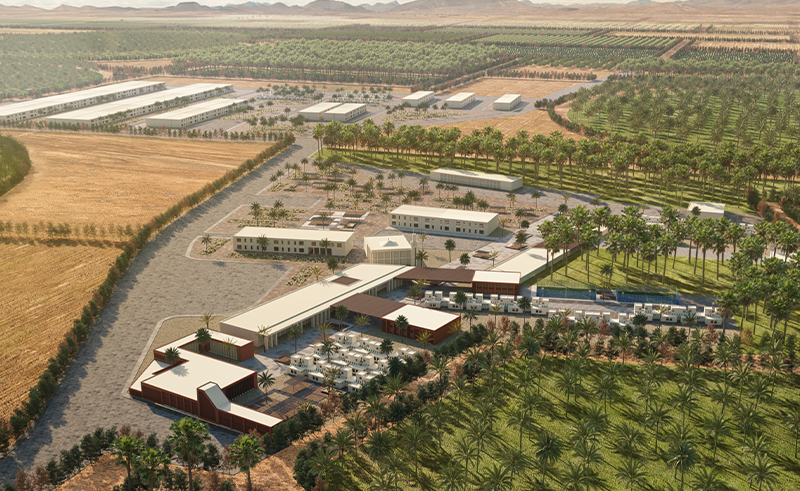
“With the largest portfolio of environmental and green transitions for Egypt’s largest corporations, ECOnsult is also dedicated to advocacy, addressing how the building sector can further mitigate emissions and adapt to local needs. A women-led company, ECOnsult is now making accessible and affordable green buildings in Egypt,” El Battouty says.
Innovation is embedded in every aspect of ECOnsult’s portfolio. From the Pavilion Café in Italy, constructed using discarded refrigerating casings and waste wood, to Banque Misr’s green-certified branch in Egypt, ECOnsult has consistently proven that sustainable solutions can be both high-impact and cost-effective.
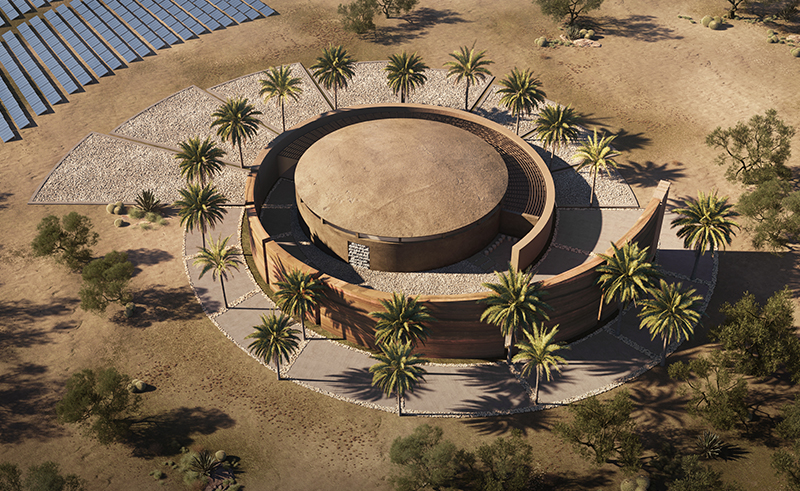
“Climate action in the building sector is no longer optional; architecture for better livelihoods is now an integral part of all business growth,” El Battouty adds.
Photography Credit: ECOnsult
- Previous Article El Masreyeen & Molotof Team Up: A Generational Sound Collision
- Next Article Six Unexpected Natural Wonders to Explore in Egypt








